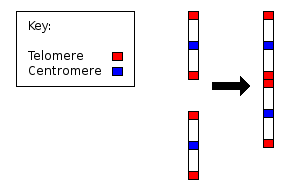This is a very useful link, and after looking at that, there is no way that people can deny that natural selection occurs.
Natural Selection is no more susceptible to disproof than any any other tenet of science. The question is why the focus on this. The answer is obvious. Because it offends fundamentalism. As I said before, why are the fundies not challenging Newton or Galileo? You haven't connected that part of what I said with your opinion that I think science is static.
Aqueous I am not with these fundamentalists or think like them, but the reason comes down to evolution, religious texts are in opposition to it, not what Newton or Galileo said. My problem is not with evolution, I accept it, my problem is with natural selection. I admit I do not believe natural selection has anything to do with evolution, perhaps I can do another thread at some point and discuss this, I do not deny that it occurs, I just think evolution is driven by a more important mechanism.
I am saying that whatever the best evidence reveals, that is where you find science,
I fully agree with that, but when it comes to natural selection I have read 100s of books, studied the topic in depth etc, I see no direct evidence for ns driving evolution.
You haven't said why you think that day will ever come, or - if you're hoping it will - why.
I believe there is already evidence do downplay ns as an evolutionary mechanism, I can discuss that in another thread when I sort myself out and try and get together some kind of case.
Do you think Galileo, or Bruno, or any of the other victims of witch hunts would approve of calling "science" dogmatic? Why the hyperbole?
I do not think science is dogmatic only natural selection. I can talk about this in another thread at some point, but right now I am still trying to ponder on how natural selection can be falsified.

